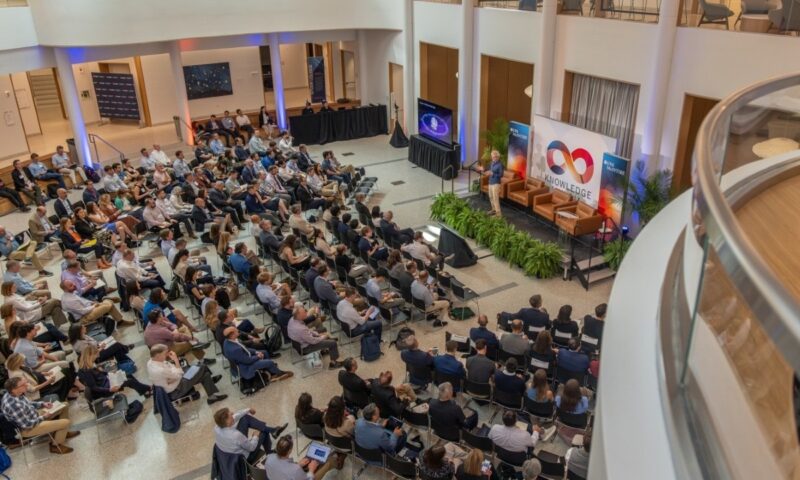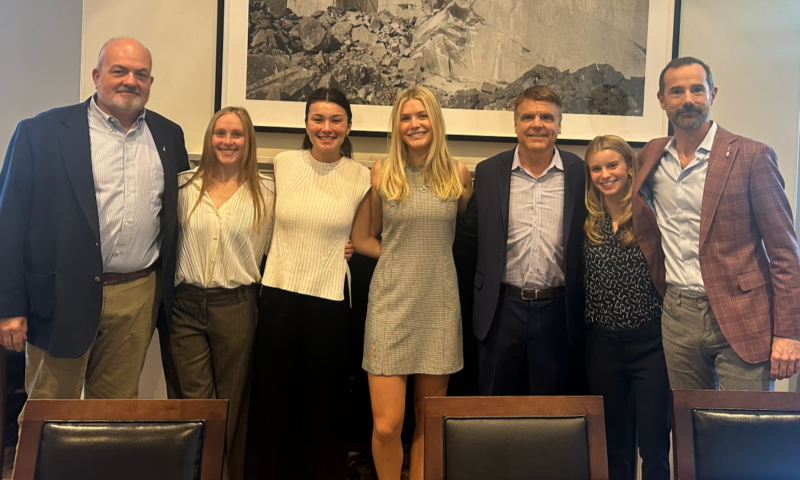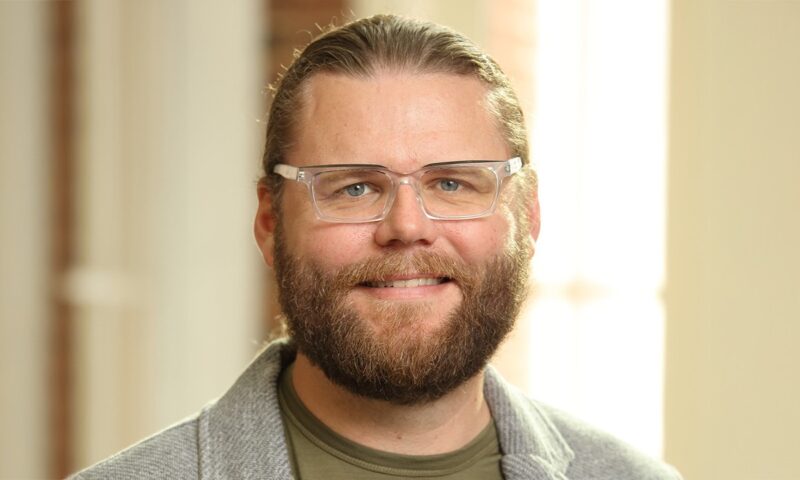Two separate McIntire student teams from Professor Reza Mousavi’s Business Analytics with Python course each successfully placed second in two virtual events during the spring semester: the Wharton People Analytics Ninth Annual Student Case Competition and the Business Analytics Competition at Manhattan College.
The People Analytics team included now-graduated Class of 2022 students Daniel Jadallah, Justin Magill, and Connor Smith, who took home the second-place prize of $8,500 from the University of Pennsylvania for their analytics-informed solution to the business question presented on May 6.
The Manhattan College competitors, which included recent grads Ashley Deng, Divya Kumaran, and Ryan Psik, as well as Tara Vasanth (McIntire ’23), won second place and its $1,500 prize for their effort hosted by the New York City-based school on April 23.
Regarding the outcome of both competitions, Mousavi was pleased to see his students achieve great success as they delved into data science and business analytics—areas he considers to be in a “relatively technical domain.” Recognizing the participants’ excellent work ethic, he also acknowledges that “they are great storytellers, but what impressed me the most was their technical aptitude and their appetite for advanced technical analysis.”
Problems Solved
Jadallah says that the most challenging aspect of the Wharton competition experience concerned overcoming stumbling blocks after their analyses failed to provide any actionable insights despite multiple attempts: “Being persistent and continuously looking for different ways to approach the problem at hand were the most difficult and time-consuming aspects of the process.”
His teammates agree, with Smith noting that they used a variety of different Python packages and constantly adjusted them to make the most effective model. Magill says that the amount of information to sort through forced hard decisions to be made. “A data set this large could tell you a million different things, but you only have time to focus on a few key things to present.”
Vasanth found similar issues in preparing for the Manhattan College competition: “We found that narrowing down and cleaning the data were challenging. We were given a lot of different variables to work with, and it was up to us to analyze and assess which ones were the most important.”
Psik says that their greatest hurdle was the need to spontaneously shift gears.
“On presentation day, we discovered we didn’t have the actual competition questions. We had an intro sheet discussing the broad problem and thought it was an open-ended competition,” he admits. “Our solution ended up aligning with the prompts, but it was a bit challenging to adapt the presentation on the fly while also being contrarian. We threw out one of the data sets they used for a question because, on its face, it wasn’t particularly useful for predictive analysis.”
Valuable Work
Participants in the two competitions found the endeavor worthwhile for a variety of their own reasons. Vasanth enjoyed the fact that their work had an application in the real world.
“The data we worked with had to do with different responses to the COVID-19 pandemic, and it was interesting to see how we could apply the results to something that had personally impacted us.”
Magill says that collaborating with his teammates was rewarding on its own, but that the experience served to remind him “what can be achieved with a little bit of hard work.”
“I also had more fun as we dug deeper into the data. Towards the end, I couldn’t stop thinking about all the other analyses we could have done if we only had more time!” Magill says, believing that the skills he learned in preparing and presenting in the competition will prove useful in his career, “especially as the world becomes more and more data-driven.”
Jadallah, who recalls being particularly excited to start Mousavi’s Business Analytics class back in January, as it was the first analytics course he took, says that the Wharton competition provided additional motivation to challenge himself within the class itself. “Our team put a lot of time in, and I feel like I learned much more than I would have otherwise. The course taught us all of the frameworks and machine learning models that we used in our analyses. Professor Mousavi really encouraged us to participate despite us having minimal coding experience and backed that up by filling his class with relevant and practical information that we drew upon in the competition.”
Smith says that Mousavi provided great guidance and coaching along the way, offering recommendations for the team’s work. “He also went more in-depth on some of the topics we learned in class in order to help us build a stronger model.”
The professor’s input was equally as essential for Psik and the team in the Manhattan College competition. “I had a bit of Python experience before his course, but not to the degree necessary for the competition analysis. Professor Mousavi made himself available on multiple occasions.”
Mousavi gave the students a chance to apply their knowledge to what was required by the event within class, Vasanth says, and allowed them to consider peer feedback in order to better drive the direction of their presentation. “Some of the concepts Professor Mousavi taught us, like machine learning, helped our team differentiate ourselves in the competition. We were also able to pitch our initial analysis to the class, and we got valuable feedback that helped us improve our project,” Vasanth says.
Seeing his students’ success, Mousavi says that the competition gave “external validation of the fact that they are ahead of the curve in data science and analytics. They showed that they can leverage what they have learned in their previous courses at McIntire and UVA, and can complement those with the technical topics we covered in our class—and that they get rewarded when they do so.”



